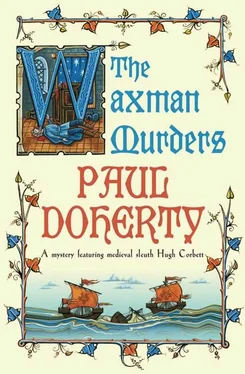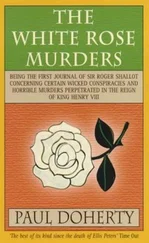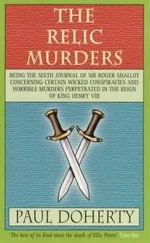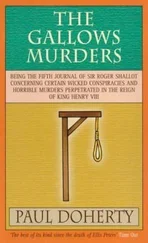Paul Doherty - The Waxman Murders
Здесь есть возможность читать онлайн «Paul Doherty - The Waxman Murders» весь текст электронной книги совершенно бесплатно (целиком полную версию без сокращений). В некоторых случаях можно слушать аудио, скачать через торрент в формате fb2 и присутствует краткое содержание. Год выпуска: 0101, Жанр: Исторический детектив, на английском языке. Описание произведения, (предисловие) а так же отзывы посетителей доступны на портале библиотеки ЛибКат.
- Название:The Waxman Murders
- Автор:
- Жанр:
- Год:0101
- ISBN:нет данных
- Рейтинг книги:3 / 5. Голосов: 1
-
Избранное:Добавить в избранное
- Отзывы:
-
Ваша оценка:
- 60
- 1
- 2
- 3
- 4
- 5
The Waxman Murders: краткое содержание, описание и аннотация
Предлагаем к чтению аннотацию, описание, краткое содержание или предисловие (зависит от того, что написал сам автор книги «The Waxman Murders»). Если вы не нашли необходимую информацию о книге — напишите в комментариях, мы постараемся отыскать её.
The Waxman Murders — читать онлайн бесплатно полную книгу (весь текст) целиком
Ниже представлен текст книги, разбитый по страницам. Система сохранения места последней прочитанной страницы, позволяет с удобством читать онлайн бесплатно книгу «The Waxman Murders», без необходимости каждый раз заново искать на чём Вы остановились. Поставьте закладку, и сможете в любой момент перейти на страницу, на которой закончили чтение.
Интервал:
Закладка:
Adelicia closed her eyes. The Crutched Friar who’d advised her in the shriving pew was right! The road to hell was broad, easy and slippery. One sin led to many greater. Small gifts, coy glances, secret meetings and furtive kisses: in the end they had become intimate and Wendover had proved to be an ardent lover, a welcome relief from Sir Rauf, though recently Adelicia had grown tired of the chattering youth behind Wendover’s tough warrior pretence. Oh, and how Wendover liked to talk, especially about himself and his past exploits as a mercenary, and how they would find the Cloister Map, their path to wealth and riches. What golden prospects the future held! Adelicia would listen to him, as she had on that cold December afternoon before falling asleep. When she’d woken, Wendover had gone. He often did that. Sometimes she found coins or petty gee-gaws missing. At first she couldn’t believe he was a sneak-foist, a pilferer of pennies, when he was supposed to be her accomplice in the search for greater things, yet the evidence was there. Was he also a murderer? Adelicia wondered. On that fateful afternoon had Wendover slipped towards her house and killed Sir Rauf? He had often talked of her being a widow, about what would she do if Sir Rauf died. True, the preachers sermonised about God’s will, but would a man like Wendover be prepared to give God’s will a helping hand? Had Wendover killed Sir Rauf?
Adelicia turned quickly and screamed at the rat racing across the table; she shook her chains and the vermin disappeared. She thought again of that afternoon. She stood accused of murdering her husband after a violent quarrel. She had rejected such a charge, pointing to the nonsense of it all, yet the accusations remained and now hung over her like a hangman’s noose. Lady Adelicia was no fool. She was a high-born lady accused of dashing out her husband’s brains. Her cloak had been stained with his blood; gore-soaked napkins had been found in her bedchamber, so what hope did she have before twelve good burgesses whose ears would have been bent by their wives as they whispered their honeyed poison?
So far, Adelicia had kept her own counsel. She had said nothing about Wendover, or their trysts at The Chequer of Hope. Who would believe her? She was cunning and quick enough to realise that it would only go against her. She would be cast as an adulteress as well as an assassin. No, Adelicia had other plans. She knew a little of the law; she would turn King’s Approver. If Castledene accused her of being an assassin, well, she would accuse Sir Rauf of being a murderer. After all, she knew about Stonecrop, what her husband had done; the evidence was there for all to see, that corpse rotting away in the desolate garden of Sweetmead Manor. She would blame Sir Rauf for that and make no mention of the Cloister Map or her relentless search for it. What else should she fear? Berengaria? The little minx was now lodged with Parson Warfeld, apparently unmoved by the horrors around her. Berengaria acted like a cat who’d licked the cream bowl clean, as if savouring secrets known only to herself. Sharp memories pricked Adelicia’s mind, glimpses caught through a half-open door of Sir Rauf stroking Berengaria’s hair. Would the girl remain loyal? And Wendover, with his arrogance and pilfering ways, what would he say?
Lady Adelicia clutched her stomach. Whom could she trust? In the end she had made the right decision. Castledene knew she had been a royal ward and had forwarded her petition to the King. Edward was now sending his own man into the city. Adelicia nodded to herself and moved towards the table, eager to take another mouthful of watery ale. She would talk to the King’s man and no one else.
Chapter 2
Ecce, nocturno tempore orto brumali turbine.
Behold, at night-time the storm breaks.
ColumbaSir Hugh Corbett was roughly roused from his bedchamber at the guesthouse of St Augustine’s Abbey by a heavy-eyed lay brother, hands fluttering, who stammered the usual monastic benediction before hastily adding that Sir Walter Castledene had arrived. The Mayor of Canterbury was deeply agitated, so the lay brother declared, waiting below with his retinue in the refectory. Castledene was insisting that the King’s emissary accompany him immediately to Maubisson.
Corbett aroused Ranulf and Chanson in the adjoining chamber, going in and out as he hastily dressed, kicking Chanson’s bed, leaning over Ranulf to shout at the heavy-eyed clerk to prepare himself. Corbett pulled on his spurred boots, gathered up his war belt and cloak and hurried down the torchlit staircase. Sir Walter had left the refectory and was waiting impatiently in the hallway; his horsemen milled in the cobbled yard beyond, their mounts snorting and kicking at the cobbles. The torches carried by the riders spluttered sparks through the freezing cold air, making the horses even more skittish. The greetings between mayor and clerk were brief but cordial. Corbett knew Castledene of old. They’d fought in Segrave’s mounted brigade at Falkirk five years earlier. Corbett would never forget that fight. The English longbowmen had broken Wallace’s schiltrons and the heavy mailed cavalry of Lord Segrave had poured in, phalanx after phalanx of armoured knights, to bring the remnants of the Scots to battle, mace against club, sword against stabbing dirk, a frenzy of blood-spilling which still haunted Corbett’s dreams.
‘Sir Walter.’ Corbett stepped back. ‘What is the matter?’
Despite being a wealthy man, a powerful citizen, Castledene looked dishevelled and tired; his wiry frame cloaked in a simple cote-hardie, quilted jerkin and hose above battered riding boots, his lean face drained of all colour.
‘You’d best come to Maubisson, Sir Hugh. I have dreadful news.’ Castledene glanced fearfully over his shoulder at his retinue. Mailed men-at-arms clustered in the entrance; others stood outside amongst the horsemen. The mayor hardly gave the guest master, who now came hurrying down, a second glance whilst he curtly nodded at Ranulf and gestured at the door.
‘Sir Hugh, come, for God’s sake! We have to go to Maubisson! Paulents and all his family are dead!’
‘Dead?’
‘Hanged like a coven of felons! Do you understand me, Sir Hugh? Hanged here within the King’s peace and under our protection!’
‘How?’
Castledene didn’t answer; he was already moving towards the door. All thoughts Sir Hugh had had of joining the good brothers in their stalls and participating in the glory of plainchant were quickly forgotten. He muttered his apologies to the guest master and followed Castledene. Horses were hastily trotted out and saddled, the yard noisy with hooves clattering over cobbles. Ranulf shouted at the grooms to check girth and stirrups. Corbett, half asleep and freezing cold, mounted, gathered the reins and then they were away, cantering out of the abbey yard along a narrow icy lane leading down to the Dover road. Corbett was aware of the jingle of harness, the snorts of horses and the quiet curses of men cantering through the freezing grey dawn. They passed carts lumbering into the city. He glimpsed lantern lights, flickering flames, a lonely lamp glowing in an arched window, but then the dark swept in around them. The road was slightly raised; carts and wagons had already shifted the fallen snow but it was still dangerous going. Two horses went down and they and their riders had to be left behind. At last the comitatus reached the trackway stretching down to Maubisson. Here the snow was so deep they had to dismount and walk their horses towards the iron-studded gateway in the curtain wall of the manor. This was ablaze with torchlight from flambeaux fixed in sconces or on poles driven into the ground. More guards clustered here, all wearing the livery of the city beneath their cowled cloaks: three ravens against a blue and gold background.
Читать дальшеИнтервал:
Закладка:
Похожие книги на «The Waxman Murders»
Представляем Вашему вниманию похожие книги на «The Waxman Murders» списком для выбора. Мы отобрали схожую по названию и смыслу литературу в надежде предоставить читателям больше вариантов отыскать новые, интересные, ещё непрочитанные произведения.
Обсуждение, отзывы о книге «The Waxman Murders» и просто собственные мнения читателей. Оставьте ваши комментарии, напишите, что Вы думаете о произведении, его смысле или главных героях. Укажите что конкретно понравилось, а что нет, и почему Вы так считаете.












